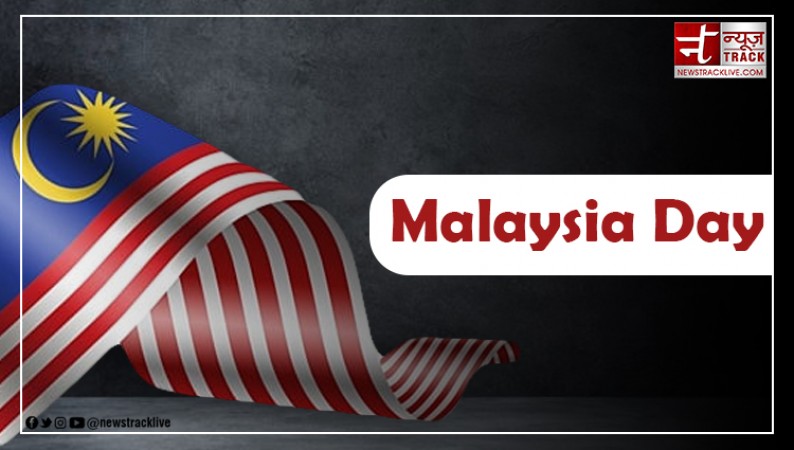
Malaysia Day 2023: Every year on September 16, Malaysia comes alive with vibrant colors, joyful celebrations, and a profound sense of national pride. This is Malaysia Day, also known as 'Hari Malaysia,' a day that commemorates the historic moment in 1963 when the Malaysian Federation was formed. While Malaysia already has its Independence Day on August 31, Malaysia Day holds its own significance, celebrating the unity and diversity of a nation born out of a complex historical journey.
The Historical Significance
To understand the importance of Malaysia Day, we must delve into the historical backdrop against which it unfolded. The journey to the formation of the Malaysian Federation was a long and intricate one.
The Birth of the Federation
On September 16, 1963, a new nation was born as the East Malaysian states of Sabah and Sarawak, together with the former British Colony of Singapore, merged with the Malaya Federation. This unification marked a significant moment in the history of the region, as it brought together diverse cultures, languages, and peoples under a single banner.
Sabah and Sarawak, both rich in resources and natural beauty, had their own unique histories. Sabah, situated on the island of Borneo, had been a British colony for 17 years before becoming part of Malaysia. Its rich petroleum resources made it a coveted territory, with both the Philippines and Malaysia seeking control.
Sarawak, on the other hand, had been ruled by the 'white rajas,' the Brooke Dynasty, which had overseen its transformation and expansion. Its integration into Malaysia added another layer of complexity to this union of states.
Challenges and Conflicts
The road to Malaysia's formation was not without its challenges. One of the most notable was the separation of Singapore from the Federation on August 9, 1965. This separation was prompted by political and ideological differences, making Singapore an independent nation.
Additionally, the issue of sovereignty and territorial disputes was significant. Sabah's rich resources and its location were points of contention. This led to disputes with the Philippines over who had rightful ownership, further complicating the nascent nation's political landscape.
In the 1970s, Indonesia's mass exodus of refugees and the dispute over Sabah's right to neighboring islands, such as Sipadan and Ligitan, added fuel to the fire. Eventually, these islands were officially declared part of Sabah, cementing its place within the Malaysian Federation.
Recognition of Malaysia Day
Despite the historical significance of Malaysia Day, it did not initially receive the recognition it deserved. It was not declared a public holiday until the request made by former Prime Minister Datuk Seri Najib Tun Razak in 2010. This recognition was a momentous step, acknowledging the importance of this day in the nation's history.
Commemorating Malaysia Day
Today, Malaysia Day is a time for Malaysians to come together and celebrate the strength of their diverse nation. The celebrations are marked by various national ceremonies, parades, cultural performances, and gatherings that showcase the rich tapestry of Malaysian culture.
One of the most notable events is the raising of the Malaysian flag, known as the 'Jalur Gemilang,' which features 14 alternating red and white stripes representing the 13 states of Malaysia and the federal territories. This flag-raising ceremony symbolizes unity and solidarity among the diverse regions of the country.
Cultural festivals and exhibitions are also held throughout the nation. These events highlight Malaysia's cultural diversity, with displays of traditional dances, music, clothing, and cuisine from various ethnic groups such as Malays, Chinese, Indians, and indigenous communities. It's a time when Malaysians take pride in their multicultural heritage and celebrate the harmonious coexistence of different cultures within the same nation.
The Significance of Malaysia's Dual National Days
Some may find it curious that Malaysia has two national days: Independence Day on August 31 and Malaysia Day on September 16. However, both of these days are deeply significant, each representing a unique facet of Malaysia's history.
Independence Day, celebrated on August 31, marks the nation's liberation from colonial rule. It is a day of remembrance for the sacrifices made by those who fought for Malaysia's freedom from British colonialism. On this day, Malaysians reflect on their hard-won independence and the progress the nation has made since then.
On the other hand, Malaysia Day, observed on September 16, commemorates the birth of the Malaysian Federation. It represents the coming together of different regions, cultures, and histories to form a united nation. Malaysia Day celebrates diversity and unity in equal measure, underscoring the nation's commitment to embracing its multicultural identity.
Malaysia Day, also known as 'Hari Malaysia,' is a day of immense historical and cultural significance. It serves as a reminder of the complex journey that led to the formation of the Malaysian Federation on September 16, 1963. While Malaysia already celebrates its Independence Day on August 31, Malaysia Day offers a unique perspective, highlighting the unity and diversity of a nation born out of a tapestry of cultures, languages, and histories.
The challenges faced during the formation of the Federation, the complexities of integrating diverse states like Sabah and Sarawak, and the eventual recognition of Malaysia Day as a public holiday all contribute to the rich tapestry of Malaysia's history.
In the modern era, Malaysia Day is a time for celebration, reflection, and unity. It is a day when Malaysians come together to honor their diverse heritage and express their commitment to a harmonious coexistence. Through cultural festivals, flag-raising ceremonies, and various other festivities, Malaysians proudly showcase their multicultural identity.
In essence, Malaysia Day encapsulates the spirit of a nation that cherishes its past, celebrates its present, and looks forward to a future where unity, diversity, and progress continue to be its guiding principles.